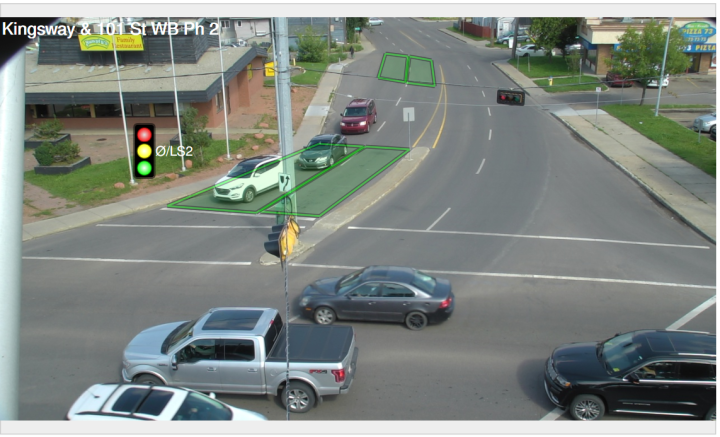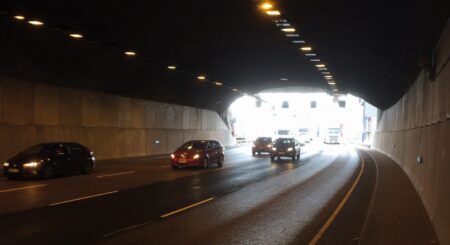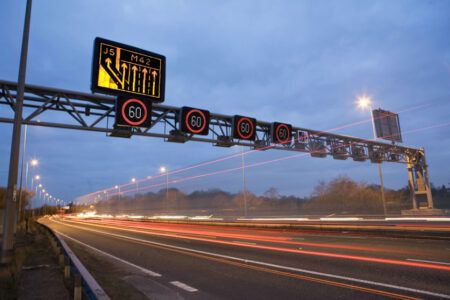The City of Edmonton in Alberta has become the first Canadian city to deploy an adaptive traffic signals corridor in trials of the technology that form part of the city’s smart transportation initiative.
Edmonton’s Traffic Operations Department has installed adaptive traffic signals for a three-month trial basis at all controlled intersections on 101 Street, the city’s primary north-south corridor. The new adaptive technology manages vehicle and pedestrian traffic by monitoring and changing traffic signal timings to become more responsive to variable traffic demand. The C$750,000 (US$563,000) project involves the installation of cameras at all four corners of each of the nine intersections covered by the scheme. The real-time camera data is fed into the traffic management platform to control signal timings based on demand. Located in Edmonton’s busy central entertainment and arena district, the 101 Street corridor can experience high demand during ice hockey games, concerts and other special events,
As part of the trial, an automatic thermal pedestrian detection system has been installed at the 103A Avenue and 101 Street intersection. The system is designed to recognize when pedestrians are present at crossing points and initiate the ‘walk light’ when it is safe to cross the street.
The trial period is in line with the school year and increased activity at the Rogers Place multi-use arena, allowing the system to be tested for a variety of traffic conditions at different times of the day. Results from the trial will be reported to the City Council by March 2020.
The three-month pilot program is part of the City’s Smart Transportation Action Plan, which provides guiding principles for testing and adopting smart transportation initiatives including connected, automated, electric and shared technologies. A pilot program is needed to evaluate each technology to ensure the least disruption for drivers and other road users should it be adopted on a large scale, and that it can be implemented at an acceptable level of cost.
“The City of Edmonton is the first Canadian city to test this technology on its streets,” said Olga Messinis, director of traffic operations. “The City’s traffic signals operate within national guidelines and are consistent with many North American agencies, but adaptive traffic signals have the potential to reduce delays and travel time in some areas of Edmonton’s street network. Our action plan requires us to test each technology and its impact to ensure it is compatible with the city’s overall traffic system.”





